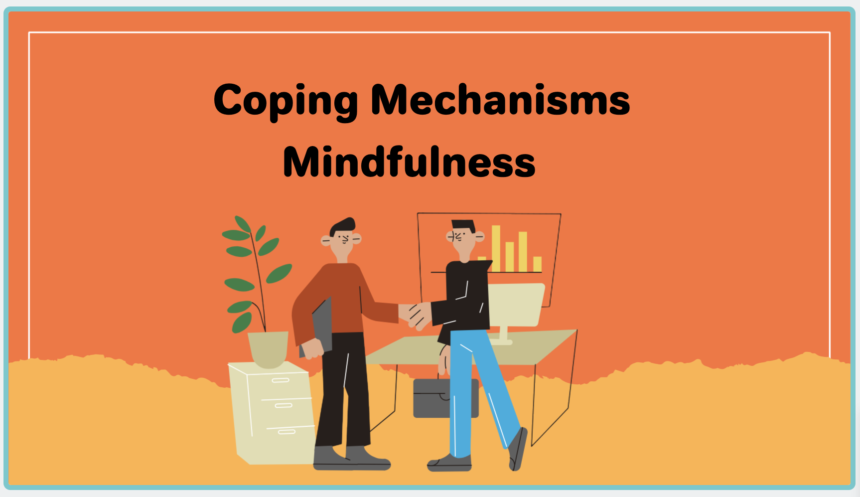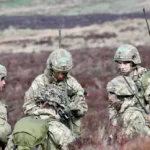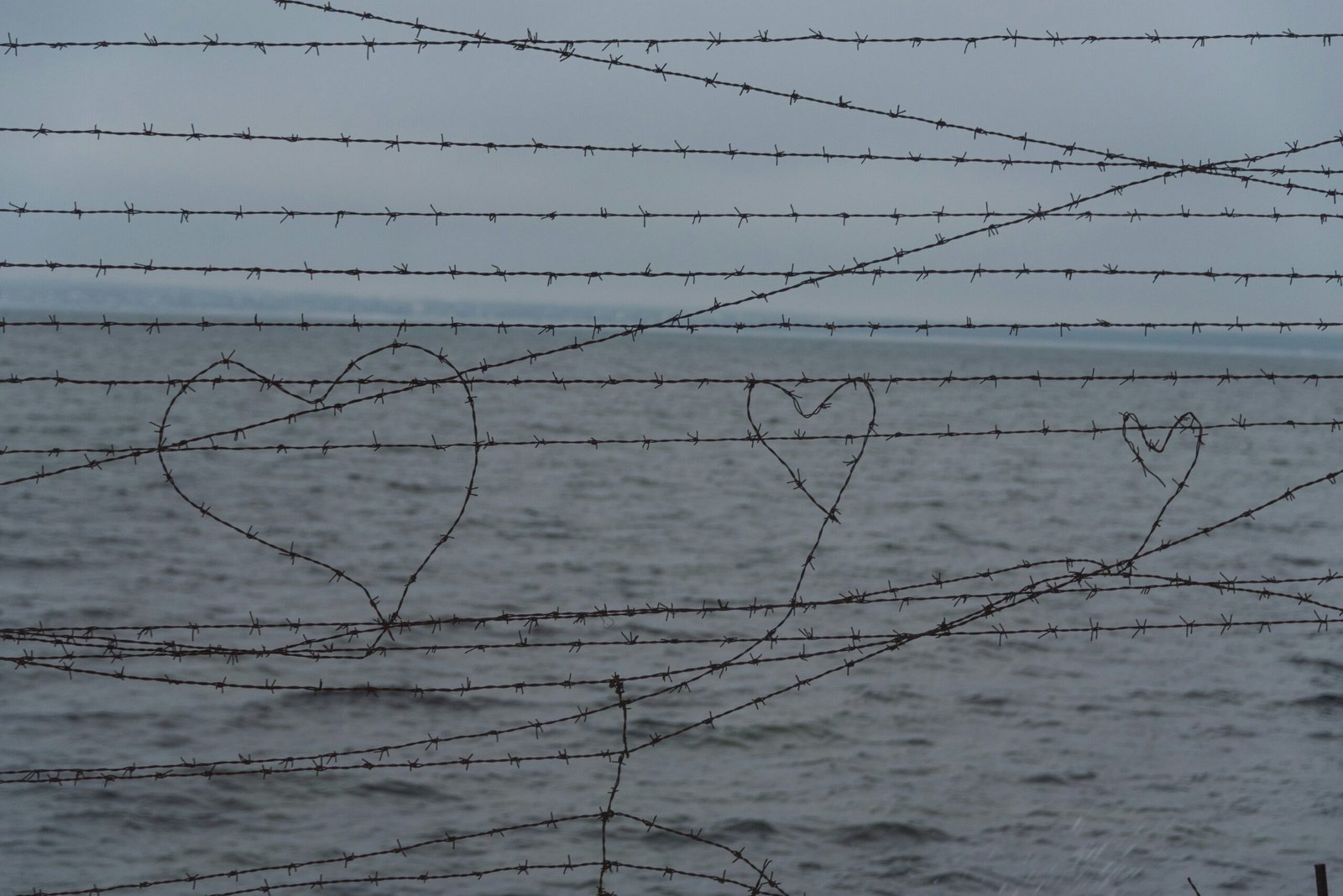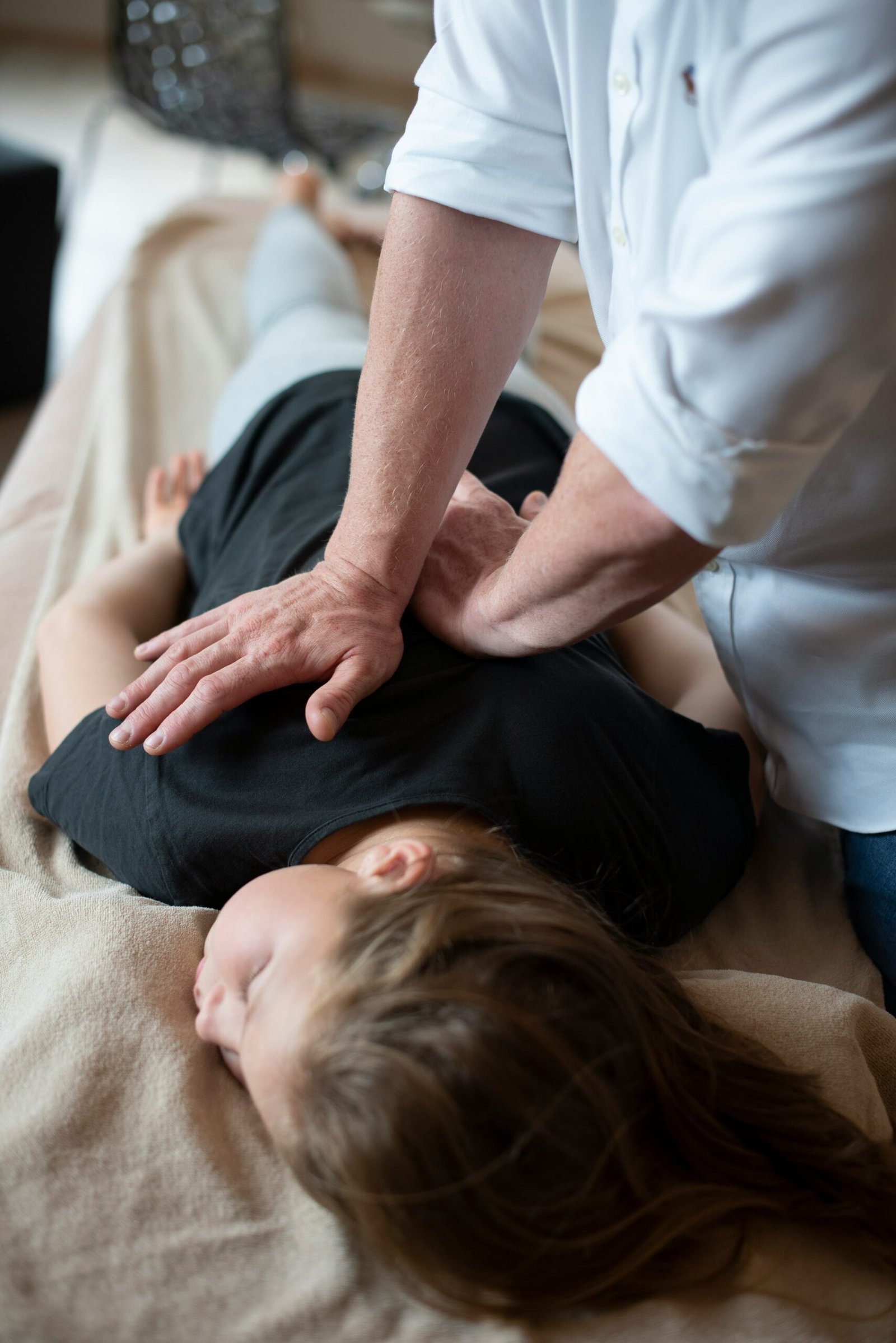Mindfulness meditation is a practice that emphasizes the development of an open, non-judgmental awareness of the present moment. Rooted in ancient Buddhist traditions, mindfulness has transcended its spiritual origins to become a widely recognized therapeutic tool in contemporary psychology. The practice encourages individuals to observe their thoughts, feelings, and bodily sensations without attachment or aversion. This allows practitioners to cultivate a greater sense of clarity and emotional regulation.
Post-traumatic stress disorder (PTSD) is a mental health condition that can develop after an individual has experienced or witnessed a traumatic event. In the context of UK veterans, the prevalence of PTSD is a significant concern, often influenced by the unique nature of military service. According to recent studies, it is estimated that approximately 10% of veterans may experience PTSD, with some evidence suggesting higher rates among those who have been deployed to conflict zones.
Symptoms of PTSD can vary but typically include intrusive memories, severe anxiety, irritability, and emotional numbness. Veterans may also experience flashbacks and nightmares related to their service, which can severely impact their quality of life. The military environment often emphasizes resilience and bravery, which can complicate veterans’ willingness to seek help. Many veterans may feel an added pressure to maintain a stoic facade, leading to underreporting of symptoms and delaying the necessary treatment.
Moreover, the unique challenges faced by veterans include reintegration into civilian life and grappling with the moral and ethical implications of their experiences during service. For many, the transition can provoke feelings of isolation and abandonment, exacerbating symptoms of PTSD. The stigma associated with mental health issues within military culture can further hinder access to support and intervention. Recognising PTSD is crucial to promoting effective coping strategies and ensuring that veterans receive the care they need. With the increasing focus on mental health awareness, it is imperative to highlight resources and therapies tailored for veterans dealing with PTSD. Through informed interventions, a path toward recovery becomes increasingly feasible for those affected by this debilitating condition.
Understanding Mindfulness Meditation
At its core, mindfulness meditation involves paying deliberate attention to the present, observing one’s internal experiences and the surrounding environment. Unlike concentration meditation, where focus is narrowed onto a specific object or thought, mindfulness is broad and inclusive. This inclusive nature makes it a unique and effective approach for those dealing with trauma, as it helps to create space between the individual and their distressing thoughts or memories.
The principles of mindfulness meditation include awareness, acceptance, and non-reactivity. Awareness entails recognizing thoughts and feelings as they arise, while acceptance means acknowledging these experiences without judgment or the urge to change them. Non-reactivity, on the other hand, involves limiting automatic responses to challenging thoughts or situations, thereby fostering a more measured reaction to stressors. These principles work synergistically to enhance psychological resilience and promote emotional well-being.
Research indicates that practicing mindfulness meditation can lead to significant improvements in mental health, particularly for individuals struggling with post-traumatic stress disorder (PTSD). Psychological benefits include reduced symptoms of anxiety, depression, and stress, while physiological benefits may encompass lower blood pressure and improved sleep quality. By integrating mindfulness meditation into daily routines, individuals may find solace and healing from the scars of trauma, creating a pathway towards recovery and emotional stability.
How Mindfulness Meditation Affects PTSD Symptoms
Post-Traumatic Stress Disorder (PTSD) affects many veterans, manifesting in various symptoms such as anxiety, depression, and intrusive thoughts. Emerging research indicates that mindfulness meditation can be a viable complementary approach to alleviate these symptoms. By cultivating a heightened awareness of the present moment, veterans can effectively engage with their thoughts and emotions, promoting healthier emotional regulation.
Mindfulness meditation employs techniques such as focused breathing and body scanning, enabling practitioners to observe their mental state without judgment. This process fosters a sense of detachment from distressing thoughts, helping individuals to reduce the influence of negative thought patterns. Scientific studies illustrate that regular mindfulness practice can lead to reductions in anxiety levels by promoting a more balanced emotional state. By learning to approach thoughts with curiosity rather than avoidance, veterans can diminish the impact of intrusive memories associated with their traumatic experiences.
Furthermore, mindfulness meditation has been linked to improved resilience. Veterans who engage in these practices often report an enhanced ability to cope with stressors related to their PTSD symptoms. This resilience can serve as a protective factor against potential triggers, thereby reducing the frequency and intensity of emotional responses. Additionally, quality of life improvements, such as enhanced social interactions and reduced feelings of isolation, can arise from the emotional regulation fostered through mindfulness practices.
A further benefit of mindfulness meditation is its positive influence on depressive symptoms. Research has shown that engaging in meditation can lead to decreases in depressive episodes over time. By focusing on the present and reducing rumination about past events, veterans may find greater ease and clarity, paving the way for a more peaceful mental landscape. Thus, mindfulness meditation emerges as a powerful tool for veterans navigating the complexities of PTSD, offering pathways toward relief and personal growth.
Practical Steps to Get Started with Mindfulness Meditation
Beginning a mindfulness meditation practice can be a transformative journey, particularly for veterans seeking relief from post-traumatic stress disorder (PTSD). The first step involves creating a suitable environment that encourages relaxation and focus. Choose a quiet, comfortable space in your home where you can minimize distractions. This area should be well-lit, whether by natural light or gentle artificial light, and should be free from noise interruptions. Adding supportive items such as a cushion or a chair can enhance comfort during your practice.
Next, it is essential to select a specific time of day to dedicate to mindfulness meditation. Consistency is key to developing a lasting habit. Many individuals find early morning or late evening to be optimal due to lower distractions and a quieter environment. However, select a time that fits well within your daily routine. Set reminders to help establish this practice as part of your daily schedule.
Once you have established a conducive environment and chosen a time, consider some basic techniques to foster engagement in mindfulness meditation. Begin with focused breathing exercises; find a comfortable position, close your eyes, and take deep, slow breaths. Focus your attention on the inhalation and exhalation. Gradually, you can start to incorporate body scanning techniques, where you mentally check in with different parts of your body to release tension while remaining present.
Utilizing guided meditation resources, such as smartphone applications or online videos, can also provide valuable assistance for beginners. These tools often introduce techniques that promote mindfulness in a structured way, making it easier to stay committed to the practice. Over time, you will likely develop a deeper connection with mindfulness, contributing positively to your mental health.
Common Challenges and Solutions in Mindfulness Practice
When veterans embark on the journey of mindfulness meditation, they often encounter various challenges that can hinder their practice. One prevalent issue is restlessness, which can manifest as an inability to sit still or a racing mind full of thoughts. This sensation can be particularly overwhelming for those who have experienced high-stress situations. To address restlessness, veterans can start with shorter sessions, gradually extending the time as they become more comfortable. Engaging in mindful movement, such as yoga or walking meditation, can also serve as a robust entry point, helping to anchor attention while allowing the body to release pent-up energy.
Another common hurdle is difficulty concentrating. Veterans may find focused attention challenging, especially if they are used to reacting quickly to their environment. To enhance concentration, it is advisable to begin with guided meditations available through various apps or online platforms. These resources can provide structured support, allowing veterans to focus on the facilitator’s voice rather than their racing thoughts. Practicing gratitude alongside mindful meditation can also help, as it shifts attention toward positive aspects of life, fostering a sense of peace and connection to the present moment.
Skepticism towards mindfulness practices can pose yet another barrier. Veterans might question the effectiveness of meditation in alleviating stress and PTSD symptoms. Engaging in discussions with fellow veterans or mental health professionals about their experiences can provide validation and insight. Additionally, starting with short, informal meditation sessions can lessen pressure and allow individuals to explore the practice without commitment. Over time, as veterans witness gradual improvements in their emotional well-being through mindfulness, their skepticism is likely to diminish, paving the way for deeper engagement. By addressing these challenges thoughtfully, veterans can cultivate a meaningful mindfulness practice that aids in their journey toward healing.
Integrating Mindfulness into Daily Life
For veterans seeking to incorporate mindfulness into their daily routines, it is essential to recognize that the practice extends beyond formal meditation sessions. Mindfulness can be seamlessly woven into everyday activities, fostering a greater sense of presence and reducing symptoms of PTSD. Here are several practical methods to achieve this integration.
First, start the day with intention. Upon waking, take a few moments to engage in mindful breathing. Focus on your breath as you inhale and exhale, allowing yourself to settle into the day ahead. This simple practice can set a calming tone for your day, enabling you to approach challenges with a clearer mind.
During daily activities, such as eating, consider practicing mindful eating. Take time to appreciate the flavors, textures, and aromas of your food. This not only enhances the meal experience but also encourages gratitude and awareness, which can further support emotional stability.
Another effective strategy is to infuse mindfulness into mundane tasks. Whether washing dishes, walking the dog, or commuting, make a conscious effort to engage with the activity fully. Pay attention to the sensations, sounds, and surroundings, allowing yourself to immerse in the present moment. This practice can transform routine tasks into opportunities for mindfulness.
Furthermore, setting aside a few minutes throughout the day for brief mindfulness exercises can be beneficial. These might include a short body scan, paying attention to physical sensations, or even a quick gratitude reflection. Integrating these moments into your schedule can help cultivate a habitual mindfulness practice.
Lastly, consider establishing a mindful transition at the end of your day. Before bedtime, engage in relaxation techniques, such as gentle stretching or reading a book. This not only enhances your sleep quality but reinforces the practice of being present, supporting overall mental well-being.
Resources and Support for Veterans
Veterans in the UK seeking mental well-being support through mindfulness meditation have a variety of resources at their disposal. These resources cater to a diverse set of needs, offering tools that can assist in coping with PTSD and other mental health concerns. One of the most accessible forms of assistance are mobile applications designed for mindfulness and meditation. Apps such as Headspace and Calm provide guided sessions tailored for veterans, focusing on anxiety reduction and emotional regulation.
In addition to apps, numerous websites dedicated to veteran support offer valuable information on mindfulness practices. The Mindfulness Association, for instance, provides resources specifically aimed at veterans, including online courses and workshops that foster a sense of community and shared experience. Furthermore, the Veterans’ Gateway, a national resource for veterans, directs individuals to local facilities and organizations that specialize in mental health support.
Local meditation groups also serve as vital resources, providing safe spaces for veterans to engage in mindfulness practices together. Many community centres and veteran organisations host regular meditation sessions, combining teaching with peer support. This approach not only aids in mindfulness practice but also strengthens communal bonds among veterans, facilitating discussions about their experiences and challenges.
Moreover, initiatives such as ‘Walking with the Wounded’ promote physical and mental well-being through mindfulness and outdoor activities, demonstrating the benefits of nature combined with mindful practices. These community-focused initiatives are instrumental in ensuring veterans have access to both social support and mindfulness training, creating comprehensive pathways for healing and recovery.
These resources, from apps to local groups, play a crucial role in empowering veterans to engage in mindfulness meditation, promoting mental well-being, and fostering resilience in navigating their post-service lives.
Personal Accounts and Testimonials
The journey toward healing from PTSD can often feel isolating, particularly for veterans who may grapple with the unique challenges stemming from their service experience. However, many veterans have found solace and empowerment through mindfulness meditation, leading to profound transformations in their mental health and overall well-being. Their accounts serve as powerful testimonials highlighting the positive impact of this practice.
For instance, John, an Army veteran, shared how mindfulness meditation became a cornerstone of his daily routine. He recounted grappling with flashbacks and anxiety after returning from deployment, feeling overwhelmed by memories that never seemed to fade. After attending a mindfulness workshop tailored for veterans, John began to practice meditation regularly. He noted that it allowed him to observe his thoughts without judgment, creating space between his experiences and immediate reactions. Within a few months, he found himself better equipped to handle triggers, fostering a sense of calm and resilience he thought was lost forever.
Similarly, Sarah, a Navy veteran, described her initial skepticism towards meditation. Diagnosed with PTSD, she struggled to find effective coping mechanisms. Encouraged by a fellow veteran, she decided to give mindfulness a try. Sarah emphasized the significance of the breathing techniques she learned, which offered her a practical tool during moments of anxiety. As she continued her practice, she began to perceive her thoughts as passing clouds rather than overwhelming storms. This shift dramatically improved her quality of life, restoring her sense of agency.
These stories reflect a broader trend among veterans discovering relief through mindfulness meditation. The practice has provided them not only with a means to cope with PTSD but also an opportunity to connect with themselves in ways they never anticipated. Personal accounts like those of John and Sarah illustrate that the path to healing is not just possible but achievable through dedicated mindfulness practices.
Conclusion: The Path to Healing and Resilience
Mindfulness meditation has emerged as a powerful tool for veterans seeking relief from the symptoms of post-traumatic stress disorder (PTSD). By cultivating present-moment awareness, veterans can develop a greater understanding of their thoughts and emotions, allowing them to respond to triggers with increased resilience. This practice fosters a sense of inner calm, which is often elusive for those grappling with the aftermath of traumatic experiences.
Engaging in mindfulness meditation offers numerous benefits that extend beyond mere relaxation. Research suggests that regular practice can lead to a significant reduction in anxiety, depression, and stress levels, all of which are common among veterans with PTSD. Furthermore, mindfulness encourages self-compassion, helping individuals to view their experiences through a more forgiving lens. Such an approach can be instrumental in the healing journey, empowering veterans to reclaim their lives and identities.
Moreover, mindfulness meditation can bolster emotional regulation, enabling veterans to navigate their experiences with greater clarity and purpose. As they develop the ability to observe their thoughts without judgment, they may find themselves better equipped to cope with the ups and downs of their daily lives. This transformation can enhance overall well-being and contribute to a more fulfilling life after service.
It is essential to remember that mindfulness meditation is most effective when combined with other treatment options, such as therapy, support groups, or medication. This holistic approach allows veterans to harness the benefits of mindfulness while also addressing their unique needs through various avenues of care. By prioritizing this integration of practices, veterans can cultivate a more robust foundation for healing and resilience.
In summary, mindfulness meditation provides a practical means for veterans coping with PTSD to foster healing and resilience. By incorporating this valuable tool into their self-care routines, individuals can embark on a journey of profound transformation, finding strength in their experiences and hope for the future.






